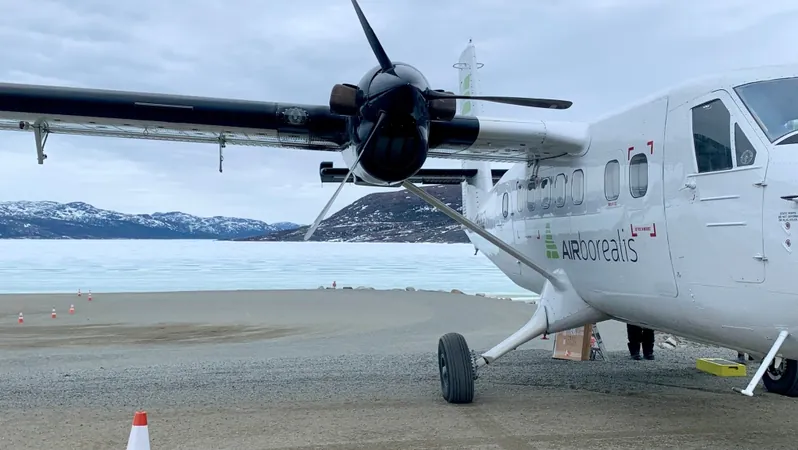
New Quebec Energy Deal Could Spell Relief for High Flight Costs to Newfoundland
2024-12-31
Author: Benjamin
New Quebec Energy Deal Could Spell Relief for High Flight Costs to Newfoundland
ST. JOHN'S, N.L. - Residents of Labrador are feeling the financial pinch as soaring flight costs discourage travel. In a promising development, officials are now looking towards a newly brokered energy deal with Quebec that may be their ticket to affordable travel.
The remote northern region, predominantly served by PAL Airlines and Air Borealis, is facing an aircraft service dilemma. Rex Goudie, representing the Goose Bay Airport Corporation, has expressed optimism that an increased demand for rotational workers could entice rival airlines to enter the market, thereby driving costs down.
Recently, Quebec and Newfoundland and Labrador announced a groundbreaking agreement to develop new hydroelectric facilities along the Churchill River—an initiative expected to generate thousands of jobs and billions in economic revenue. This significant investment could bolster the region’s economic landscape and perhaps lead to increased air service options.
While Goudie sees potential for market opportunities, he emphasizes the importance of maintaining a cooperative relationship with existing carriers like PAL Airlines. He and his team are actively analyzing how to attract additional airlines while ensuring that current services are not compromised.
Amid these negotiations, Labrador Affairs Minister Lisa Dempster has sought assistance from Canada’s competition watchdog, the Competition Bureau, citing concerns over the exorbitant flight costs affecting the region. An October study revealed shocking statistics: flight prices in Labrador have surged by 33% since 2019, compared to a mere 9% across the rest of Canada. A staggering round-trip ticket from Nain in northern Labrador to St. John's can cost nearly $2,500—money that many residents simply cannot afford.
Reflecting on the situation, Goudie stated, “I don't think there's any one solution. We believe that there's a role for government.” He added that for remote communities like Labrador, air travel is not merely a luxury; it’s a vital service, necessitating policies and programs that acknowledge and support this need.
In a parallel development, the Competition Bureau announced a market study on competition within Canada’s airline industry, with a report due by June 30, 2025. Both Dempster and Goudie have voiced their insights to the federal standing committee on transport regarding air travel challenges in Labrador.
Could the combination of increased job opportunities from the energy deal and heightened scrutiny of flight costs lead to a new era of reasonable travel expenses for Labradorians? Only time will tell, but for now, the local population is holding its breath in anticipation of relief.
Stay tuned for updates on how these developments unfold and what they mean for air travel in one of Canada’s most remote regions!



 Brasil (PT)
Brasil (PT)
 Canada (EN)
Canada (EN)
 Chile (ES)
Chile (ES)
 Česko (CS)
Česko (CS)
 대한민국 (KO)
대한민국 (KO)
 España (ES)
España (ES)
 France (FR)
France (FR)
 Hong Kong (EN)
Hong Kong (EN)
 Italia (IT)
Italia (IT)
 日本 (JA)
日本 (JA)
 Magyarország (HU)
Magyarország (HU)
 Norge (NO)
Norge (NO)
 Polska (PL)
Polska (PL)
 Schweiz (DE)
Schweiz (DE)
 Singapore (EN)
Singapore (EN)
 Sverige (SV)
Sverige (SV)
 Suomi (FI)
Suomi (FI)
 Türkiye (TR)
Türkiye (TR)
 الإمارات العربية المتحدة (AR)
الإمارات العربية المتحدة (AR)